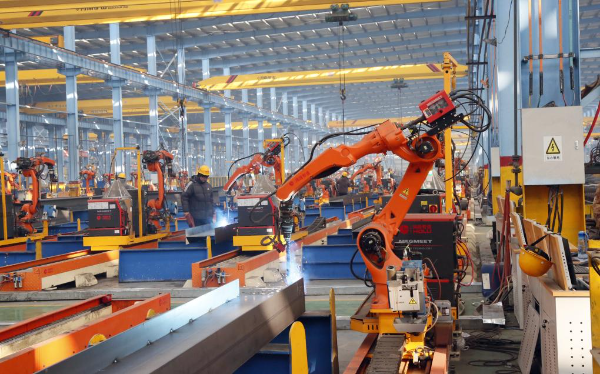
Guangdong recently released 12 measures to amplify its strengths in manufacturing by facilitating coordination and innovation in its manufacturing sector with multiple other sectors, including science and technology, design, logistics, human resources, e-commerce, foreign trade, and more.
According to the measures, the manufacturing sector is to be facilitated to transform into 'manufacturing + service,' which means switching from only selling products to offering products plus services.
At the same time, multiple platforms are being optimized as innovation carriers to form a better industrial ecology, including the commodities trade service platform, e-commerce service platform for industrial products, digital transformation service platform, and more. Ten internet producer service platforms are also expected to be established by 2027.
For the layout of producer services, it is planned that by 2027, 100 producer services clusters will be formed, covering cities such as Guangzhou, Shenzhen, Foshan, Dongguan, Huizhou, and more, focusing on sectors including artificial intelligence (AI), digital economy, commerce and trade logistics, fintech, supply chain, industrial design, and more.
The measures emphasize collaboration with logistics and cross-border e-commerce (CBEC). By forming a deeply integrated network of manufacturing and delivery that covers every step in the manufacturing process and facilitates the collaboration of CBEC with links such as raw material procurement, manufacturing, and sales, 20 pilot CBEC + industrial clusters and 100 CBEC brands with sales volumes exceeding 100 million are expected to be formed by 2027.
In expanding opening up, the measures aim to build leading producer service bases with major strategic platforms including Hengqin, Qianhai, Nansha, and Hetao, together with Hong Kong and Macao. Hengqin is supported to build a science and technological innovation platform together with Macao to develop CBEC and a legislative service system; Nansha's producer services such as shipping, financing, trade, and professional services are supported to develop in a more professionalized way and extend towards a higher position in the value chain.
The measures make it clear that by 2027, Guangdong is to establish 180 quality infrastructure 'one-stop' service centers, 200 national and provincial industrial design centers, and 700 national green factories.
To better support the collaboration of manufacturing with producer services, Guangdong is set to coordinate finance, tax, and land resources to help implement relevant measures and include producer services in the development plans of departments and cities to guide the healthy development of new models and new business forms.

